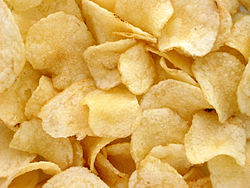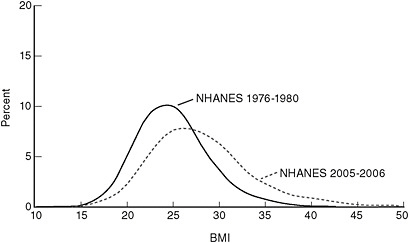 I read two things today that were compounding my ongoing frustration with the focus on “obesity” rather than overall health.* One was this post from blogger and doctor Yoni Freedhoff, and the other about fast food kid’s meals from Center for Science in the Public Interest.
I read two things today that were compounding my ongoing frustration with the focus on “obesity” rather than overall health.* One was this post from blogger and doctor Yoni Freedhoff, and the other about fast food kid’s meals from Center for Science in the Public Interest.
These, and many other things that are written with a focus on weight, really miss the point. The point to me being the nutritional quality of food we eat. Not that all food must be of high nutritional value, or consumed in the name of health. But focusing on how bad for health something is by how “fattening” it is, i.e. how many calories it contains, is missing the mark. The reason I, as a parent, limit the amount of fast food my daughter eats (even though she started out not really liking it much, she has grown into being a fan of fried chicken strips and french fries) is because of what it lacks, more than what it contains.
The problem for me, as a parent, is that many of the foods she claims to love (and these change) knock other foods out of her diet. Foods that are high in beneficial minerals like calcium, potassium, and iron, and vitamins like A, Bs, C and D, are not being eaten as often because she’s full from the other foods. Sure, there are vitamins and minerals in potato chips, but she has to eat many more of those to get the same amount as in a few pieces of raw pepper (which she sometimes enjoys). As a parent, I don’t want her to think that she can get what she needs from eating foods that are low in beneficial nutrients — especially since she prizes her ability to draw, dance and think well — and these things are connected.
I practice a very imperfect version of Satter’s Division of Responsibility in Feeding. I do let her decide when, and what to eat more than I would like to. She is always in charge of how much to eat of most things, except those things that are just so desirable that a natural stopping point is hard to find (such as potato chips). She will often not finish something sweet if she has had enough, but like many humans, potato chips are something she will eat just about forever (until her jaw hurts or her lips burn from the salt — and she prefers the less salty chips).
I am not worried about her weight or her size — I am worried that she learns to be a competent eater. I would like her to be able to eat what is served — this isn’t the case now — she doesn’t eat the school lunch served because she feels pressured to eat things she doesn’t like, and if she’s at a friend’s house, she won’t eat what’s served if she doesn’t like it. I would like her to be able to be tuned in enough to her body to eat at regular times — she would rather finish a drawing or keep playing with a friend than stop to eat, right up until she’s weak and crabby from hunger. We haven’t always done the best job of having regular meal and snack times — we always feed her breakfast, lunch, and dinner, with snacks in between if she’s hungry — but not at the same exact time each day. I just haven’t been able to do that — I’m working full-time, and I’m not the one to implement our food strategy much of the time. Her dad is definitely more of a “grazer” — he’s not interested in large meals, and prefers to snack throughout his waking hours — often nuts, fruits, small sandwiches/bread, salads, with some “snack foods” in there, too. He is always concerned that she eats — but not specifically so much what she eats. He doesn’t like her to eat much in the way of sweets — ice cream, chocolate, candy, but I don’t think he has the same sense as I do of what her overall nutritional needs are. Despite my efforts to tell him. I’m just too annoyingly close and too bossy to make an impression on this person who is the mirror image of my stubbornness. I’m the one who is fat, he is not, she is not. I worry about her getting enough of the stuff she needs to function well, now and in the future. I am fairly confident that if I did track what she eats over the course of 3 days, or a week, she would be hitting the marks, nutritionally. But I do worry that she eats too much sugar, salt and fat — not because these are bad things — but because they fill her up before she is able to enjoy foods that are better sources of vitamins and minerals.
But, as I mentioned, she’s not fat. So it doesn’t matter? She is apparently doing fine on the “calories in-calories out” equation, as far as Center for Science in the Public Interest is concerned. The problem I have with fast food being a normal, everyday deal, for my family, is that it isn’t the best way for us to eat. I don’t think it’s a particularly good way for anyone to eat everyday, not because of calories or saturated fat or sugar, but because of what it lacks.
So, why should I care what is served or advertised at fast food restaurants? Because, as a parent, it’s tiring to have to say no all the time. I don’t like to argue about food, or to have to make any food out as bad. I know saying no is part of being a parent, but I want to save my nos for the ones that really count. Having fast food be the norm, rather than home-cooked foods, fresh fruits, veggies, tasty stuff prepared with love, messes with the Division of Responsibility for me.
The way I manage this is to say that she can occasionally — not more than once a week — have fast food in the form of chicken strips and french fries — she doesn’t care for soda or milkshakes. She can have potato chips if I remember to buy them from the grocery store. At the end of most days, she has a small serving of regular — not premium — chocolate ice cream in a cake cone at home. She’s presented with a variety of fresh foods prepared lovingly by her dad, mom, aunt or other adult for most meals. And, my biggest hope is that her relationships — with me, others, food and her body — remain good, strong and whole.
*There are many excellent critiques of “healthism” — such as this one by Shannon Barber, this one from the Health Culture blog, and an amusing academic fight in the Journal of Medical Ethics about whether or not being healthy ( and following a doctor’s advice) is a moral imperative.







